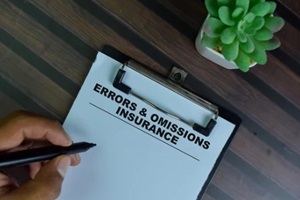 Nonprofit trade associations are essential in many industries. They advocate for members, facilitate cooperation and research, and promote best practices. However, as with any organization, they face risks that can affect their financial stability and capacity to fulfill their mission.
Nonprofit trade associations are essential in many industries. They advocate for members, facilitate cooperation and research, and promote best practices. However, as with any organization, they face risks that can affect their financial stability and capacity to fulfill their mission.
An effective risk management strategy, incorporating appropriate trade association insurance policies, can help mitigate these risks.
Understanding the Unique Risks Faced by Nonprofit Trade Associations
Trade associations can be vulnerable to regulatory changes, reputation damage, lawsuits, property losses, investment risks, etc. Their complex structures and relationships with external partners create risk exposures that standard nonprofit insurance may not address.
Regulatory and Legislative Changes
Shifts in government regulations, policies, and political priorities can significantly impact industries and trade groups representing them. Maintaining compliance as requirements change is essential.
Reputational Risks
Trade associations depend heavily on maintaining positive reputations and credibility. Controversial stances, conflicts of interest, or ethical issues can damage an association’s image.
Liability Exposures
Member services such as conferences, training programs, and publications create liability if injury or financial harm occurs. Associations may also face lawsuits alleging negligence, discrimination, breach of duty, or antitrust violations.
Investment and Financial Risks
Market volatility, reduced membership dues, lower returns on reserves or endowments, and reliance on special events or programs can lead to financial instability.
Property and Data Risks
Office spaces, equipment, data servers, and electronic records containing sensitive information are vulnerable to damage, theft, and cyberattacks.
Globalization Challenges
As industries globalize, trade associations must adapt their services and balance local representation with international concerns among increasingly diverse members.
The Role of Insurance in Mitigating Risks for Nonprofits
Insurance allows nonprofit trade associations to transfer risk exposures they cannot control or avoid reasonably. Covering defense costs and damage payments, insurance policies prevent severe financial consequences when adverse events occur.
Key types of insurance policies that can protect trade associations include:
- General Liability Insurance: Covers legal responsibility for third-party bodily injury or property damage from association operations and events. It protects against premises risks, personal and advertising injuries, and member discrimination claims.
- Directors & Officers (D&O) Liability Insurance: Protects board members, executives, and staff from personal liability lawsuits alleging wrongful acts, mismanagement, or inadequate oversight. Often includes employment practices liability.
- Professional Liability Insurance: Covers liability arising from alleged negligence, errors, or omissions when delivering services requiring accredited expertise such as certifications, designations, forecasts, and reports.
- Property Insurance: Reimburses repair or replacement costs for buildings, equipment, completed projects, furnishings, electronics, inventory, and valuables stolen, damaged, or destroyed.
- Cyber Liability Insurance: Covers expenses connected to data breaches, reputational damage control, regulatory fines, and penalties from unauthorized data access or transmission.
- Event Cancellation Insurance: Protects against financial losses due to lower-than-expected attendance, vendor issues, property damage, severe weather, or other circumstances forcing the cancellation or modification of planned events.
These policies allow associations to stabilize finances should covered losses occur instead of tapping into precious operating reserves or burdening members with additional fees to stay afloat.
Choosing the Right Insurance for Your Trade Association
With myriad options available, trade association leaders must determine the appropriate policies and coverage levels. Some factors to keep in mind include:
Industry Risk Landscape
 Associations in health care, financial services, and specialized professions such as engineering or architecture likely require professional liability or E&O policies that other trade groups may not.
Associations in health care, financial services, and specialized professions such as engineering or architecture likely require professional liability or E&O policies that other trade groups may not.
Membership Size and Structure
Associations with greater membership bases, diverse member types (individual vs. organizational), multiple affiliation levels, and international reach have higher complexities to address.
Owned/Leased Property and Locations
More owned or leased real estate in regions prone to natural catastrophes will necessitate higher property insurance limits. Cyber policies must consider data housing and security protocols.
Financial Asset Composition and Investments
Associations relying more heavily on investments to fund operations require coverage against market volatility. Trade groups managing membership dues via funds transfers need robust cybersecurity and fraud safeguards.
Events/Training Curriculum and Engagement
The frequency of in-person conferences, training, and networking engagements changes general liability, professional liability, and cancellation insurance needs. Virtual events still carry cyber risks.
Goods/Services Offered
Associations selling publications, research reports, training materials, certifications, and designations may need specialized professional liability policies to protect against errors and omissions in developing what they sell.
Contractual Obligations
Review all contracts with venues, vendors, and business partners to spot insurance requirements binding the association. Failing to meet stipulated policy types or limits risks a breach of contract.
Integrating Insurance into a Comprehensive Risk Management Plan
A detailed risk management plan catalogs organizational vulnerabilities, prioritizes them, and outlines action steps to control risks. Insurance purchases should align with top risk exposures identified by your association rather than operate in a silo.
- Conduct Risk Assessments: Insurers can provide checklists to help leaders spot gaps. Review plans annually as new issues emerge.
- Prioritize and Develop Action Plans: Rate risks by likelihood and impact to assign priority levels. Outline risk avoidance, acceptance, control, or transfer options.
- Document Risk Management Processes: Memorialize assessment protocols, action plans, overseers, and monitoring cadence. Insurers favor this diligence in pricing.
- Create Claim/Mitigation Protocols: Develop response procedures engaging stakeholders. Contact insurers promptly on claims. Follow evidence mitigation steps.
- Collaborate with Specialized Brokers: Avoid brokers pushing one-size-fits-all policies that do not meet unique trade association needs.
Maximizing the Benefits of Trade Association Insurance
Beyond purchasing adequate coverage, trade associations must actively manage policies over their life cycles to extract total value. Wise financial stewards take several actions:
 Regular Coverage Reviews: Revisit policies annually to confirm alignment with developments. Seek guidance on provisions.
Regular Coverage Reviews: Revisit policies annually to confirm alignment with developments. Seek guidance on provisions.- Thorough Risk Assessments: Insurers reward detailed assessments identifying/rating emerging issues annually.
- Claim Data Analysis: Identify patterns signaling areas needing better risk control or more funding.
- Policy Renewal Benchmarking: Benchmark premium hikes against industry trends. Shift carriers if lesser coverage still cuts costs.
- Insurer Financial Analysis: Confirm carriers maintain strong ratings and can pay future claims. Shift policies if needed.
Secure Your Nonprofit’s Future with Expert Insurance Integration from CI Solutions
Insurance may not be the most glamorous organizational necessity. Still, when appropriately integrated into risk management plans, it allows trade associations to keep the focus on their core purpose by preventing financial instability.
Navigating the emerging risks facing modern trade associations requires specialized guidance from professionals well-versed in the nonprofit sector’s unique challenges.
CI Solutions has extensive experience helping groups obtain customized trade association insurance for their needs. Contact us today at 703.988.3665 or online to discover how we can support you in protecting your trade association.
